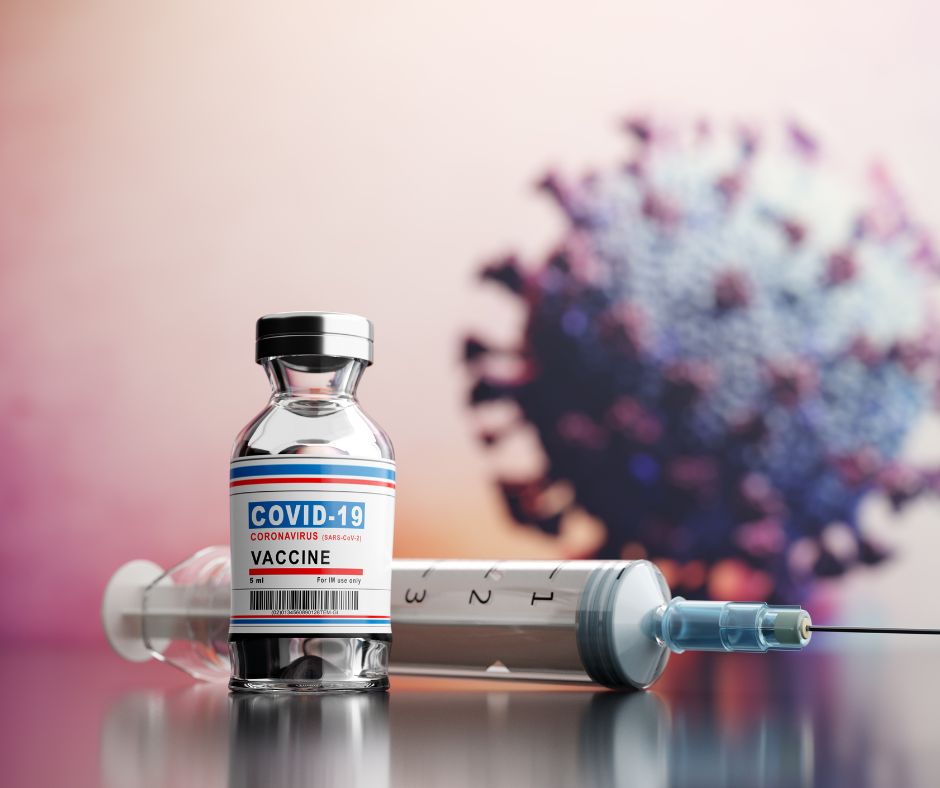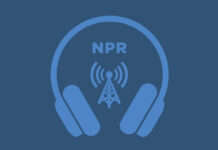By David Gortler
The Daily Signal
The latest mRNA COVID-19 boosters have been authorized since late August 2023. Nine weeks later, where are all the photos of politicians and celebrities getting vaccinated to encourage the general public to get their shots?
Despite eschewing much of social media, television, and trendy media stories, I still couldn’t avoid major mainstream news reports in 2021 and 2022 about gormless Hollywood types and political officials (who increasingly seem to preen about like Hollywood entertainers) making embarrassing spectacles of themselves getting their mRNA shots and/or gushing online about it afterward with “vaxxies” (an amalgamation of words “vaccine” and “selfies”). Sometimes they even called for the press to witness them getting mRNA injections – and of course, the press always came.
Are Americans Reticent to Get 2023 mRNA ‘Boosters’? If So, Why?
Initial mRNA shots from Pfizer were granted emergency-use authorization by the FDA on Dec. 11, 2020, and authorization of Moderna’s version quickly followed on Dec. 18. Americans immediately and eagerly lined up for their shots, encouraged by politicians and celebrities.
Unlike then, why aren’t we seeing pictures of people waiting in line for hours alongside pictures of celebrities gleefully posing in a sea of flashbulbs for fall 2023 mRNA shots? What is different this time around? Could it be that previous incentives, motivation, or clinical claims that existed then don’t exist now? Were those incentives and the subsequent enthusiasm contrived? Is it because earlier monovalent/bivalent COVID-19 shots did not live up to their promises?
Not Just mRNA; Americans Don’t Seem to Want Any ‘Vaccines’ in 2023
According to an Oct. 24 Politico article—two months after the 2023 updated COVID-19 boosters were authorized—only a mere 3.6% (12 million) of Americans have gotten their updated shot.
Only about 4.8% (16 million have gotten the influenza vaccine; so, it seems they just aren’t disinterested in COVID-19 mRNA shots. According to the Centers for Disease Control and Prevention and the Food and Drug Administration, flu vaccines are supposed to all be administered prior to Oct. 31. It is presumed that the fall deadline would be the same for COVID-19 shots as well, in sync with cooler weather. After all, both are respiratory diseases spread via droplet transmission. Plus, with the coronavirus’ high rate of mutation, mRNA shots would have to be given as quickly as possible, lest the shots become irrelevant to mutation.
Researchers from the Universities of Bath and Edinburgh have published findings showing that the virus mutates as quickly as every two weeks. That is faster than influenza, potentially making COVID-19 vaccines irrelevant faster than influenza vaccines, hence making the now-expired Oct. 31 deadline critically important for COVID-19.
Still, it seems that today, Americans don’t want any “vaccines.” The CDC called the 3.6% COVID-19 compliance figure “on track,” which isn’t really accurate. And the flu vaccine’s 4.8% compliance rate a week ahead of an Oct. 31 deadline is not on track either. This is a noteworthy aberration from historical data illustrating around 50% of all Americans typically receive flu vaccines each year.
Not to be outdone by consumer hesitancy, Pfizer is currently in late-stage testing of a combination influenza/COVID-19 mRNA injection after the FDA awarded it the highly coveted “fast track” review status in late 2022. Does that mean that in the future, consumers may not have the choice to just get an influenza vaccine without an mRNA COVID-19 shot?
Who Makes the Recommendations for the Shots and on What Scientific Bases?
While the FDA evaluates the actual COVID-19 shot approval/authorization, the CDC sets recommendations of when and who should get them. Despite epidemiology stating otherwise, especially in kids, the CDC recommends that everyone six months and older receive an updated 2023 mRNA COVID-19 shot.
Recommendations need justification. So, where is the CDC’s big data set epidemiologically justifying that vaccinating everyone six months and older is what is most appropriate? Could that lack of evidence explain why not everyone seems to be taking their CDC marching instructions as before. Could it be that the CDC is losing its authority with Americans because they, too, have an abundance of unanswered questions over the mRNA technology and want more transparency from big pharma and the federal government?
Despite Lack of 2023 Boosters, No Widespread Pandemic Appears to Be Taking Place
Even prior to the release of newest COVID-19 shots on Aug. 31, 2023, infection numbers were already fairly low. Despite the White House predicted “seasonal surge,” they are even dropping further. CDC’s data tracker now reports that only 9% of those tested are positive for COVID-19 (and that is trending downwards) and only 1.2% of emergency department visits (and falling) are diagnosed with COVID-19.
Hospitalizations are not surging with only 2.5% of deaths due to COVID-19—but both hospitalization and death figures are non-specific and nebulous. That’s because we don’t know age, non-COVID-19 co-admission diagnoses, underlying co-morbidities, or those dying “with COVID-19” versus “because of COVID-19,” etc.
Previous or current COVID-19 shot(s) would also be important to know.

Is the Lack of Celebrity Following Trickling Down to a Lack of Public Acceptance?
Whatever the reason, enthusiasm for boosters seems much lower this time. Other than President Joe Biden, and Health and Human Services Secretary Xavier Becerra, few other politicians or celebrities are bloviating about getting new injections.
Perhaps celebrities and politicians are all just quietly, privately, getting them, but why are they subdued about it this time? It’s out of character for that attention-hungry demographic. If they are choosing not to get updated shots, it would be good to know if something has changed their minds. If so, what?
Could it be at least in part because initial shots were authorized over a nine-month timeline when all other vaccines took around a decade? Or could it be that the shots have resulted in an abundance of reported safety concerns, in both the CDC’s V-safe database as well as in FDA’s Vaccine Adverse Event Reporting System, which let the public report adverse effects after receiving a vaccine?
Is There a Lack of Clarity on What Constitutes ‘Safe and Effective’ to the Point That Even Hollywood Won’t Follow the White House?
Investigational medicine scientists like myself have all heard officials state over and over again that “correlation is not causation.” But does that that mean regulators and manufacturers should just continue to deliberately ignore more than 987,000 adverse event reports from COVID-19 shots in the U.S. alone, especially when it has been shown that vaccine adverse event numbers are underreported by massive (over 95%) margins, according to a recent government-funded Harvard study?
Maybe safety skepticism isn’t beingbrushed off by celebrities and politicians and their receptive followers. Of note, epidemiologists that The New York Times interviewed have already “fact-checked” and declared that “there isn’t much evidence proving that [celebrities] boost vaccine uptake [in their admirers],” but that’s likely debatable. After all, absence of evidence is not necessarily evidence of absence—a phrase that The Times has quoted multiple times, along with government agencies, including the FDA.
Plus, if “there isn’t much evidence,” then why did the White House use its time and efforts to enlist an army of social media influencers to promote vaccines in 2021 and 2022? Why did Pfizer do the same?
From 2020 to 2022, we saw politicians, Hollywood stars, and online influencers mugging for the cameras. We saw articles like “Every Celebrity Vaccine Selfie, Ranked From Worst to Best,” “Celebrity Kids Getting the COVID-19 Vaccine,” and “Dr. Fauci Gets His Booster Shot LIVE on The Late Show.”
You can see many more examples of these types articles at the end of this piece.
With So Little Interest, Why Is the White House Still Funding Tens of Millions of Injections and Tests?
If people don’t seem interested in getting 2023 boosters, then why does the White House keep buying them? Interest in mRNA shots started waning back in 2022, forcing the government to waste 82 million vaccine doses when they expired in pharmacies. Back then, each dose cost between $25-$30, so somewhere between $2 billion to $2.5 billion were tossed out. On a side note, 2023 boosters are costing taxpayers three times what they cost in previous years, at $80-$85 per dose.
And there’s more waste: Biden’s Department of Health and Human Services has provided $600 million in taxpayer funding so that every American household can also request up to four COVID-19 tests, “for free,” despite a lack of a widespread problem or any particular danger. It also ignores prior statements by the FDA that those tests can be inaccurate and are not adequately regulated.
The White House isn’t listening to epidemiology or Americans’ disinterest is proceeding full-speed ahead purchasing more shots and tests that are likely to go unused and expire or become unusable due to COVID-19 mutations.
The remarkably low inoculation rate seems to be illustrative of the fact that Americans no longer trust federal or HHS officials’ recommendations for COVID-19 shots.
In summary, and to answer the initial question asked at the beginning of this piece: What has changed in fall 2023 from when mRNA shots were released around three years ago?
Americans are thoughtful people and don’t like secrets, bullies, or mandates, especially when it comes to their own bodies. They aren’t blindly doing as they are told by the federal government any longer.
The unusually low uptake of vaccines in 2023 also indicates that America’s public health agencies likely aren’t doing their jobs in several regards, namely in the form of transparently backing their public health decisions with cold, hard, epidemiologic and scientific justification. After all, wouldn’t Americans all rally around a transparently safe and effective vaccine, maybe even having pictures taken of their own volition, without having to be pressured into so doing by a White House-hired legion of Hollywood celebrities?
Americans can read between the lines and are showing their distrust even if they aren’t outright saying it out loud. What additional proof do they need when even pliant, follow-the-leader celebrities and politicians seem to be avoiding CDC, FDA, and White House recommendations for COVID-19 and influenza “vaccines?”
Hollywood Celebrities Showing off Getting Their Vaccines and Boosters in 2021 and 2022
People Magazine’s Celebrities and Politicians Getting the COVID-19 Vaccine: See the Photos
Coronavirus Vaccine: All the Celebrities and Public Figures Who Have Received It So Far
Celebs Recognize Importance of COVID-19 Vaccine at 73rd Emmys
All the Celebrities Who Have Received the COVID-19 Vaccine
Celebrity Kids Getting the COVID-19 Vaccine: Photos
Britney Spears Takes to Instagram After Getting the Vaccine
Ariana Grande and the Instagram Celebs Telling Their Fans to Get the COVID-19 Vaccine
Ryan Reynolds and Blake Lively Are Loving Vaccinated Life!
Pfizer Uses Star Power to Emphasize Risk Factors and COVID in Latest Vaccine Ad Push
Politicians Touting Their Vaccinations and Boosters 2020-2022
Photos of Nancy Pelosi and Mitch McConnell Vaccinated
Kamala Harris Receives COVID-19 Vaccine
Biden Gets 2nd Dose of Vaccine
Pfizer CEO Albert Bourla Getting mRNA Booster
Dr. Fauci Gets His Booster Shot Live on The Late Show
Biden Administration to Use Celebrities, Athletes in Campaign to Combat COVID Vaccine Hesitancy
David Gortler is a senior research fellow in public health policy and regulation at The Heritage Foundation. He was an FDA medical officer who was appointed by the White House to serve on the FDA’s senior executive leadership team as senior advisor to the FDA commissioner for drug safety, FDA science policy, and FDA regulatory affairs. He is a pharmacologist and pharmacist.

















